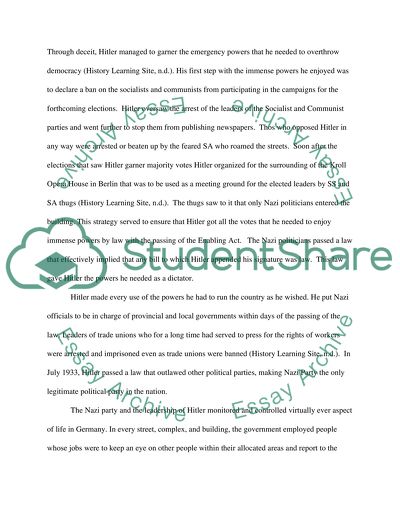Cite this document
(“Final research project: Germany (National Socialist; Hitler, Essay”, n.d.)
Retrieved from https://studentshare.org/literature/1639290-final-research-project-germany-national-socialist-hitler-1933-1945
Retrieved from https://studentshare.org/literature/1639290-final-research-project-germany-national-socialist-hitler-1933-1945
(Final Research Project: Germany (National Socialist; Hitler, Essay)
https://studentshare.org/literature/1639290-final-research-project-germany-national-socialist-hitler-1933-1945.
https://studentshare.org/literature/1639290-final-research-project-germany-national-socialist-hitler-1933-1945.
“Final Research Project: Germany (National Socialist; Hitler, Essay”, n.d. https://studentshare.org/literature/1639290-final-research-project-germany-national-socialist-hitler-1933-1945.


